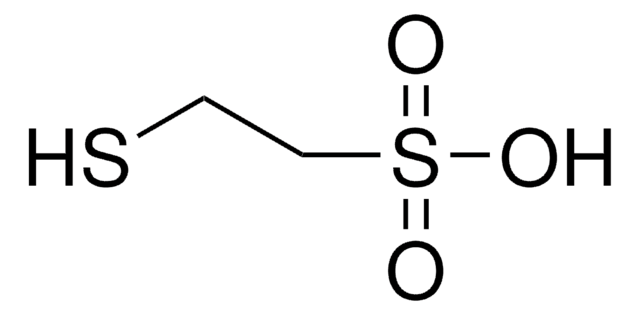251682
Sodium 3-mercapto-1-propanesulfonate
technical grade, 90%
Synonym(s):
3-Mercapto-1-propanesulfonic acid sodium salt, MPS
About This Item
Recommended Products
grade
technical grade
Assay
90%
form
powder
mp
~220 °C (dec.) (lit.)
solubility
water: soluble 50 mg/mL, colorless
SMILES string
[Na+].[O-]S(=O)(=O)CCCS
InChI
1S/C3H8O3S2.Na/c4-8(5,6)3-1-2-7;/h7H,1-3H2,(H,4,5,6);/q;+1/p-1
InChI key
FRTIVUOKBXDGPD-UHFFFAOYSA-M
Looking for similar products? Visit Product Comparison Guide
General description
Application
MPS can be also used in the preparation of Rh nanoparticles by liquid-phase reduction of rhodium (III) chloride.
Signal Word
Warning
Hazard Statements
Precautionary Statements
Hazard Classifications
Eye Irrit. 2 - Skin Irrit. 2 - STOT SE 3
Target Organs
Respiratory system
Storage Class Code
11 - Combustible Solids
WGK
WGK 1
Flash Point(F)
159.8 °F - closed cup
Flash Point(C)
71 °C - closed cup
Personal Protective Equipment
Certificates of Analysis (COA)
Search for Certificates of Analysis (COA) by entering the products Lot/Batch Number. Lot and Batch Numbers can be found on a product’s label following the words ‘Lot’ or ‘Batch’.
Already Own This Product?
Find documentation for the products that you have recently purchased in the Document Library.
Customers Also Viewed
Our team of scientists has experience in all areas of research including Life Science, Material Science, Chemical Synthesis, Chromatography, Analytical and many others.
Contact Technical Service












